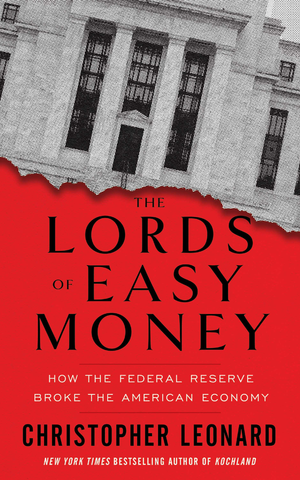
The Lords of Easy Money: How the Federal Reserve Broke the American Economy
- Book
- Jan 11, 2022
- #Economics
The New York Times bestselling business journalist Christopher Leonard infiltrates one of America’s most mysterious institutions—the Federal Reserve—to show how its policies spear...
Show More
ISBN: 1797135546
ISBN-13: 9781797135540
Mentions
See All
Alex Gladstein @gladstein
·
Feb 28, 2022
I highly recommend you all read
Danielle DiMartino Booth @dimartinobooth
·
Mar 10, 2022
Highly recommend.